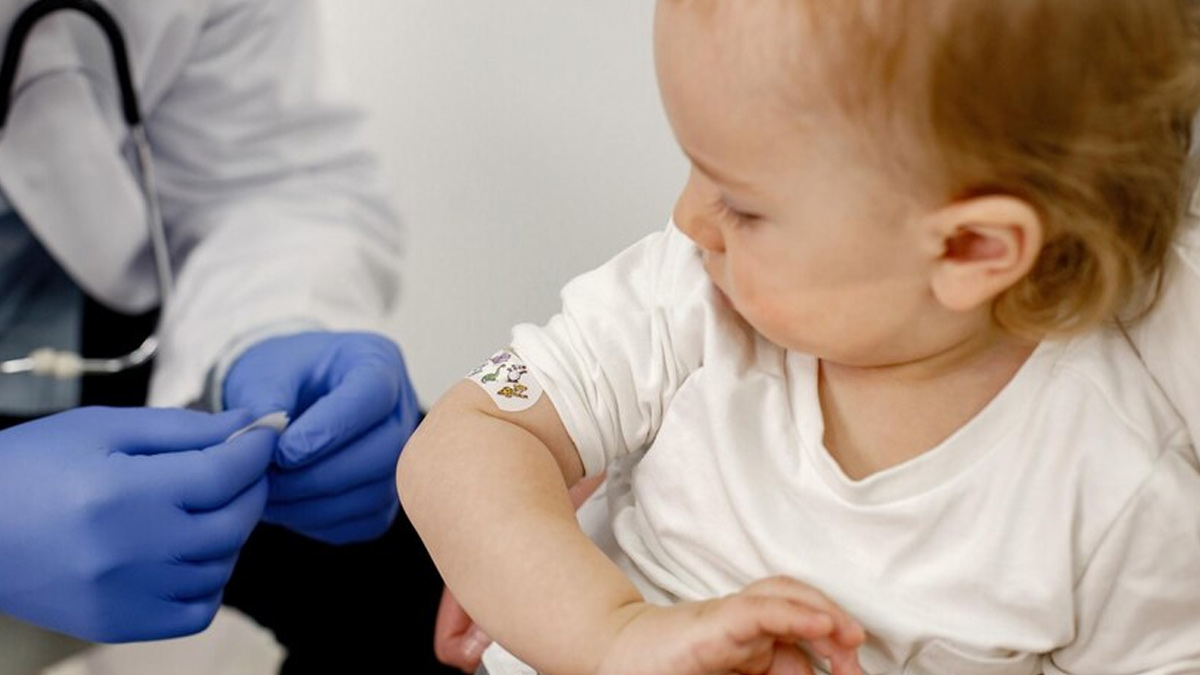
Immunisation, also known as vaccination, is a method to keep oneself protected against infections and diseases by stimulating the immune system to recognise and fight specific pathogens like viruses and bacteria, before they can cause illness. Vaccination is usually given at a younger age so that the body is immune to particular diseases and does not occur at all in the lifetime.
Table of Content:-
To understand more about immunisation and why it is important for children to be immunised, OnlyMyHealth team spoke to Dr Somalika Pal, Consultant – Neonatologist and Paediatrician at Cloudnine Group of Hospitals, New Delhi.
Explaining the process of immunisation, Dr Pal said, “The process typically involves administering a vaccine, which contains a weakened or inactive form of a microorganism or its toxins. This exposure triggers the body's immune response, leading to the production of antibodies and memory cells that can recognise and rapidly respond to the real pathogen if encountered in the future. As a result, vaccinated individuals are less likely to contract the disease and are also less likely to spread it to others, contributing to the control and prevention of infectious diseases on a population level.”

Why Is Immunisation Important For Children?
According to a study by the Centers for Disease Control and Prevention, Immunity is the body’s way of preventing disease. It stated, “Because a baby’s immune system is not fully developed at birth, babies face a greater risk of becoming infected and getting seriously ill. Vaccines help teach the immune system learn how to defend against germs. Vaccination protects your baby by helping build up their natural defences.”
Also read: Experts Explain The Future Of Children's Mental Healthcare
Dr Pal said, “Immunisation is crucial for children because it provides several important benefits that contribute to their health and well-being.” Here are six key reasons listed by Dr Pal on why immunisation is important for children.
1. Prevention of Serious Diseases
Immunisation protects children from potentially life-threatening diseases such as measles, polio, diphtheria, pertussis (whooping cough), tetanus, hepatitis B, and meningitis etc. As per Dr Pal, these diseases can cause severe complications, including life threatening pneumonia,brain damage, paralysis, and death. Vaccines significantly reduce the risk of contracting these illnesses.

2. Reduction of Disease Spread
Vaccination not only protects vaccinated children but also helps prevent the spread of infectious diseases within communities. “When a large proportion of the population is vaccinated (herd immunity), the transmission of diseases is significantly reduced, protecting those who cannot be vaccinated due to medical reasons or age,” Dr Pal said.
3. Mitigating the severity of a disease
Some vaccinations help in preventing the severe manifestations of a disease for instance, BCG vaccine helps protect against the disseminated brain and spinal tuberculosis.
4. Cost effective
Immunisation is a cost-effective public health intervention. The cost of vaccinating a child is far lower than the cost of treating a child with a vaccine-preventable disease. Additionally, preventing these diseases reduces healthcare costs associated with hospitalizations, treatments, and long-term disabilities.
Also read: 12 Essential Nutrition Tips for Children's Lifelong Well-being
5. Protection of Future Generations
Vaccines have played a crucial role in reducing and eradicating diseases globally. “By ensuring high vaccination coverage among children, we can protect future generations from diseases which cause increased school absenteeism, poor feeding and malnutrition and impact generational health,” Dr Pal said.

6. School Entry and Travel Requirements
Many schools and childcare facilities require proof of vaccination for enrollment. Some countries also require specific vaccinations for travel purposes. Keeping children up-to-date with vaccinations ensures they meet these requirements and can participate in educational and travel opportunities without restrictions.
In summary, immunisation is vital for children as it protects them from serious diseases, reduces disease transmission, is safe and cost-effective, contributes to global disease control efforts, and facilitates participation in school and travel activities. Concluding, Dr Pal said, “Regular vaccination according to the recommended schedule helps ensure optimal protection against vaccine-preventable diseases.”
Also watch this video
How we keep this article up to date:
We work with experts and keep a close eye on the latest in health and wellness. Whenever there is a new research or helpful information, we update our articles with accurate and useful advice.
Current Version